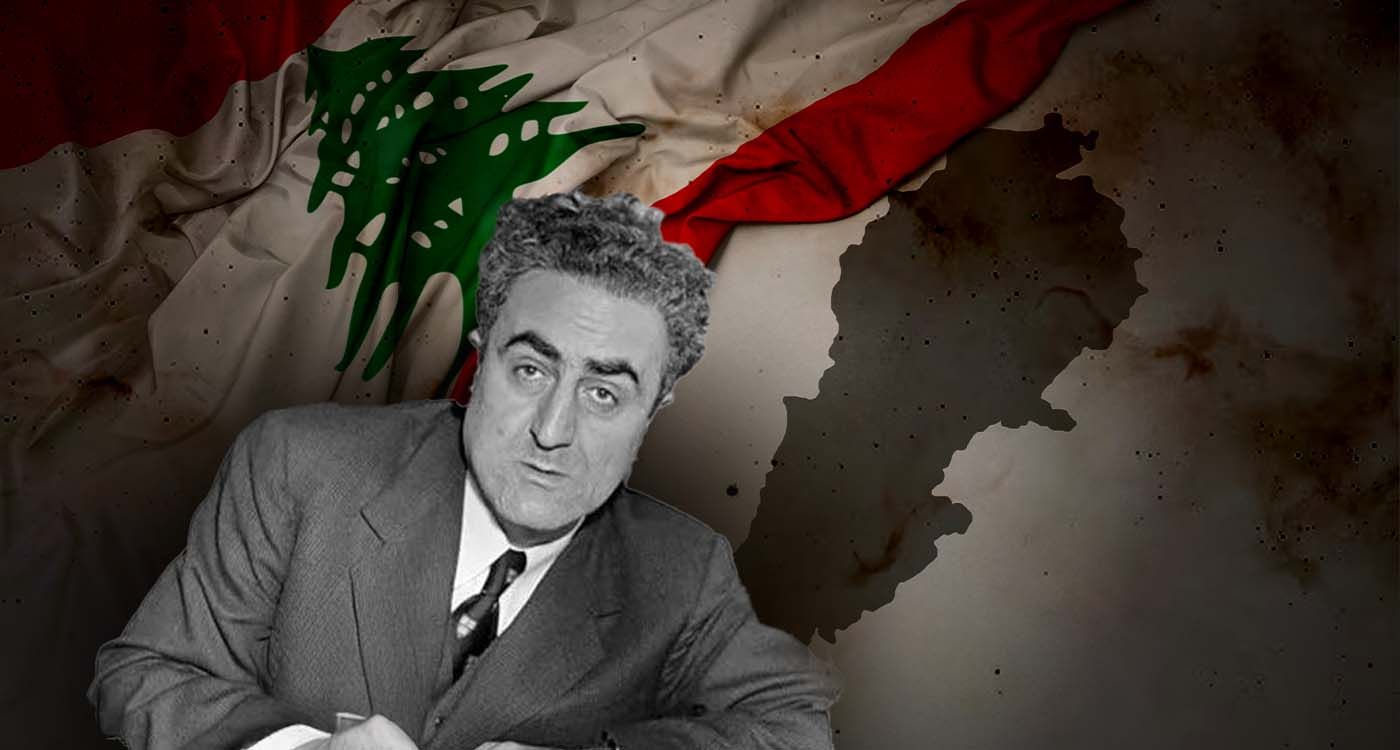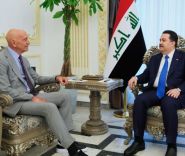
Lebanon faces an existential threat, warns Tom Barrack. He suggests the country could be absorbed into one of those large regional blocs the United States dreams of building for energy, commercial or security reasons. The diplomat likely had a slip of the tongue. He should have read the letter addressed in 1989 by Pope John Paul II to all Catholic bishops worldwide, in which he cautioned: “The disappearance of Lebanon would without a doubt be one of the world’s greatest regrets. Safeguarding it is one of the most urgent and noble tasks the world of today must assume.”
Inspite all our faults and shortcomings, Lebanon’s disappearance would mean the loss of a unique and irreplaceable crossroad of civilizations in this part of the world. It would mean the end of a country defined by its pluralism, its absolute respect for fundamental freedoms, its maritime window and openness to the West, its centuries-old ties to Rome and Paris, its Francophonie, its trilingual identity, its Semitic character, and even its talent for bargaining; a talent that has led it, like Abraham leaving Sodom, to bargain even with God.
Unfortunately, what Le Drian or Barrack seem to ignore is just as unknown to many Lebanese. Everyone must understand that the blow dealt to our sovereignty and the loss by the State of the monopoly on arms is a strategic error with deep roots. More precisely, it goes back to the 1969 Cairo Agreement, when Lebanon granted Palestinians the right to attack Israel from Lebanese territory.
The irony is that this forfeiture of sovereignty occurred at the very moment President Chehab had endowed Lebanon with the full institutional framework of a genuine democracy.
That first cession of sovereignty to the Palestinians was followed by the cession to Syria under the Taif Agreement, then by Iran’s hegemony after the Syrian Army’s withdrawal in 2005. In truth, Lebanon declared independence in 1943 but has yet to truly live as a sovereign state. Someone should whisper that into Barrack’s ear.
Charles Malek can be loved or disliked. He was politically aligned with the Lebanese Front, that “Christian right” which, with Syrian support, defeated the “Palestino-progressive” National Movement.
But Malek was also one of the drafters of the United Nations Universal Declaration of Human Rights, and, just like Michel Chiha, deserves to be rediscovered. His prose has the grandeur, the repetitions, the sweeping cadences, and the pedagogical breath of a man who defined, almost inadvertently, the essence of Lebanon.
In an article reprinted from Al-Fusul al-Lubnaniya (No. 3, Summer 1980, pp. 24-34), Charles Malek, himself Greek Orthodox, wrote: “Jesus said: ‘To whom much is given, much will be demanded.’ The Maronites have been given much, therefore much will be asked of them. Above all, they have been given this great mountain: Mount Lebanon, one of the most evocative names in the Bible and in history. A name synonymous with glory, integrity, elevation, nobility, grandeur, beauty, holiness, perfumes and fragrances, and the eternal ‘Cedars of God.’”
The Maronite Mission
“Today, strategically, Mount Lebanon is one of the strongest fortresses in the Near East, not only by itself but also as part of the Middle East’s general defensive strategy. No other people in this region have been blessed with a land like Lebanon’s. If I were to evaluate the importance of this region within global strategic contexts, and the unique position of a Mount Lebanon facing the Mediterranean Sea, it seems only fair to say that no other people in the world has received such a mountain. It is a monumental gift. Abandoning it in any way would be an unforgivable sin. This raises a few questions: Do Lebanese, and Maronites in particular, deserve such a monumental gift? Do they value it as they should?”
Charles Malek was not a strategist, yet it is striking to see him use the term “defensive strategy” at a time when it was not yet in vogue. One wonders what he would have said seeing Benjamin Netanyahu redraw the straight lines once traced by Sykes and Picot. But from his words, one thing is clear: if Israel controls the Hermon heights today, we should give it no pretext to approach our sublime mountains. We must keep our fortress for ourselves. Hezbollah may prefer death to humiliation, so be it, but it has no right to drag all of Lebanon into a doomed adventure. Lebanon belongs to it only in co-ownership.
Malek added in the same article: “Lebanon was given as a gift to all Lebanese; therefore, we are all, especially the Maronites, responsible for preserving this mountain and ensuring, with our own hands and those of our brothers, that it remains impregnable. It must be so: for our brothers and for ourselves, it must continue to exist, to endure and to remain worthy of the moral qualities that history has bestowed upon this mountain.”
In the response Lebanon must deliver next Tuesday to Barrack and his “Boss,” it should be stated clearly, somewhere, that what has just happened in Syria has further eroded our trust in the United States. The slap Ahmad al-Sharaa just received in Sweida and Damascus proves that meeting Donald Trump in Saudi Arabia is no guarantee of protection from the Israeli far right’s blows.
For us Lebanese, who are at the very source of what is most authentic in the UN Charter of Human Rights, the lesson is obvious: the Middle East now taking shape is not new. It is the Middle East of the fittest, one that obeys none of the principles of universal civilization, where a word given is a word of honor.



Comments